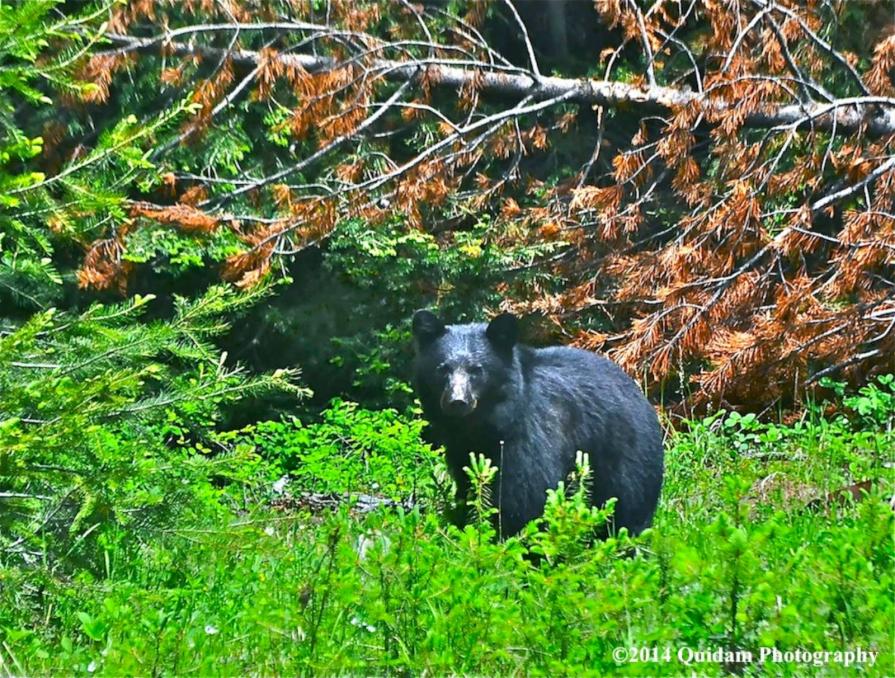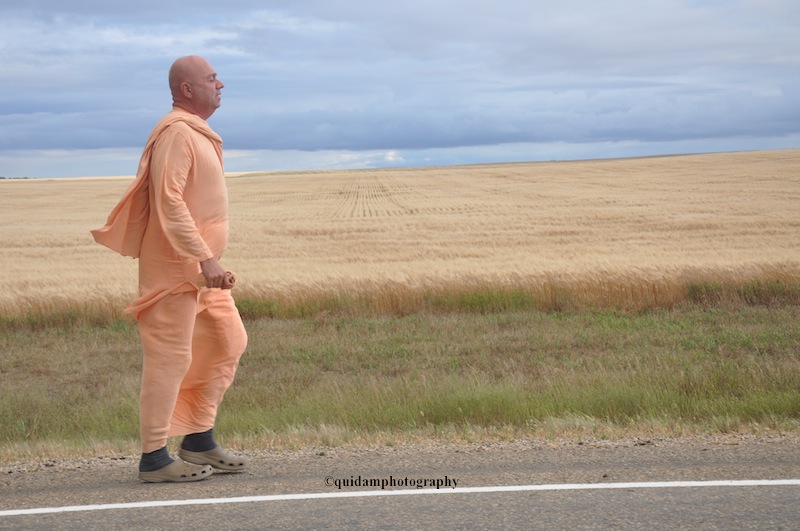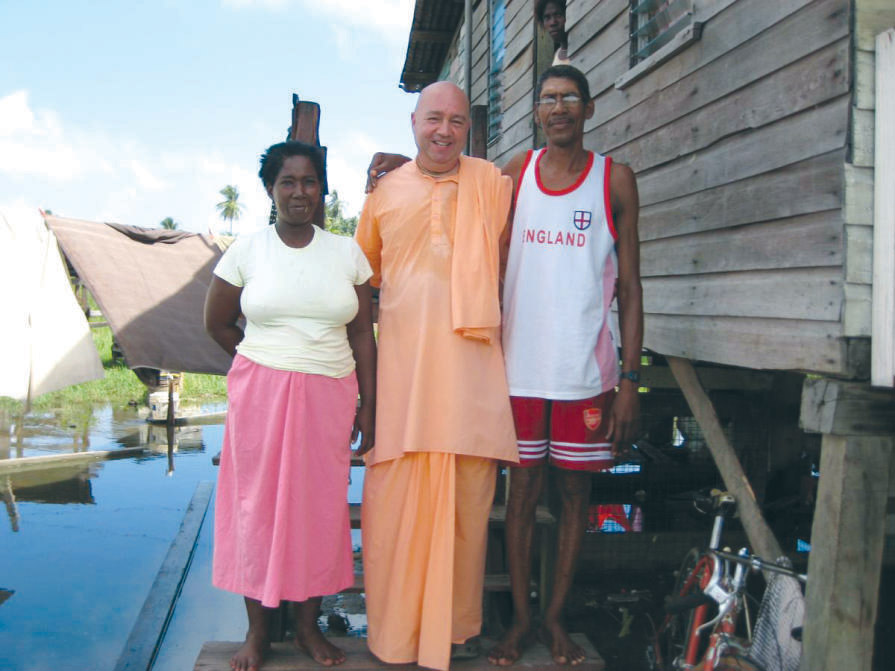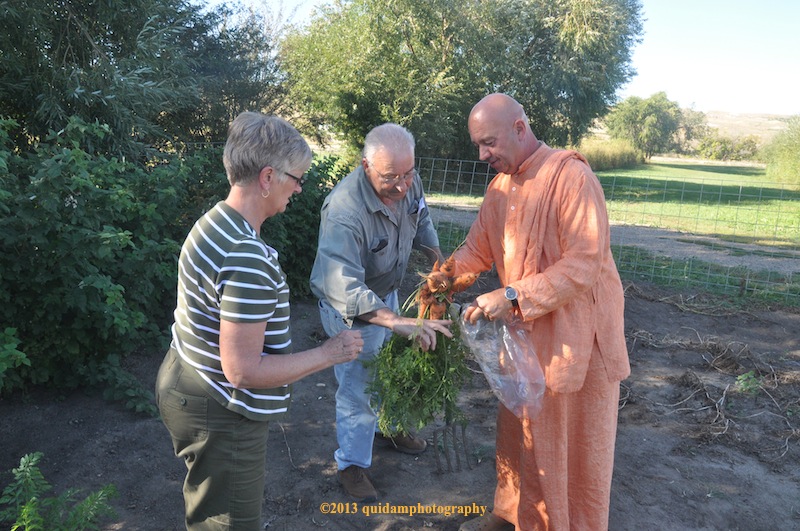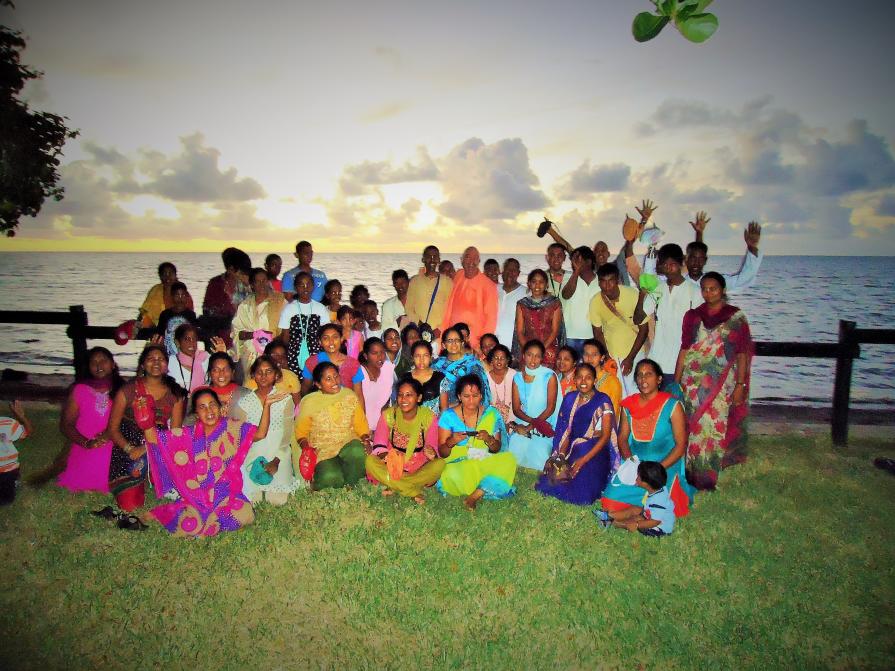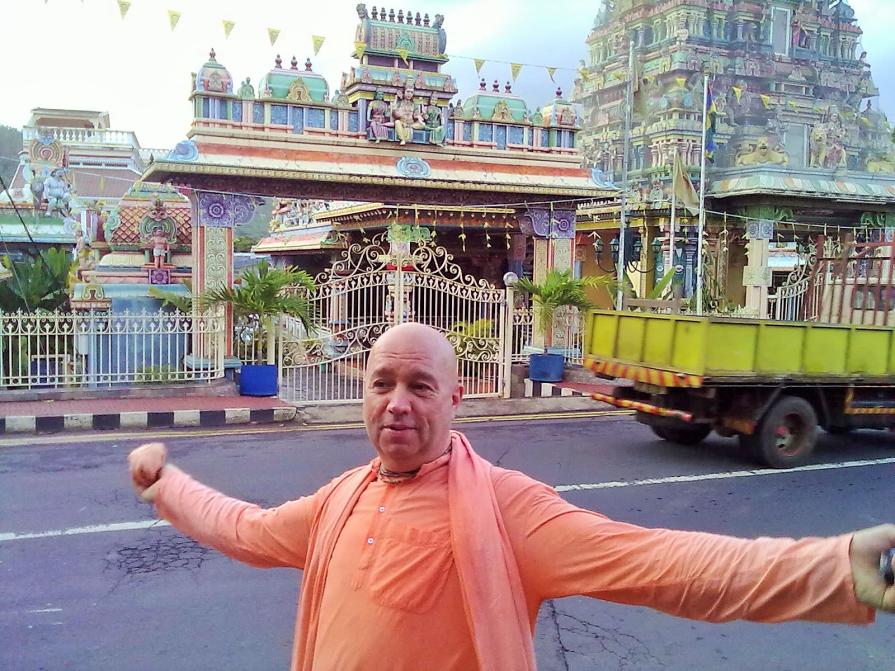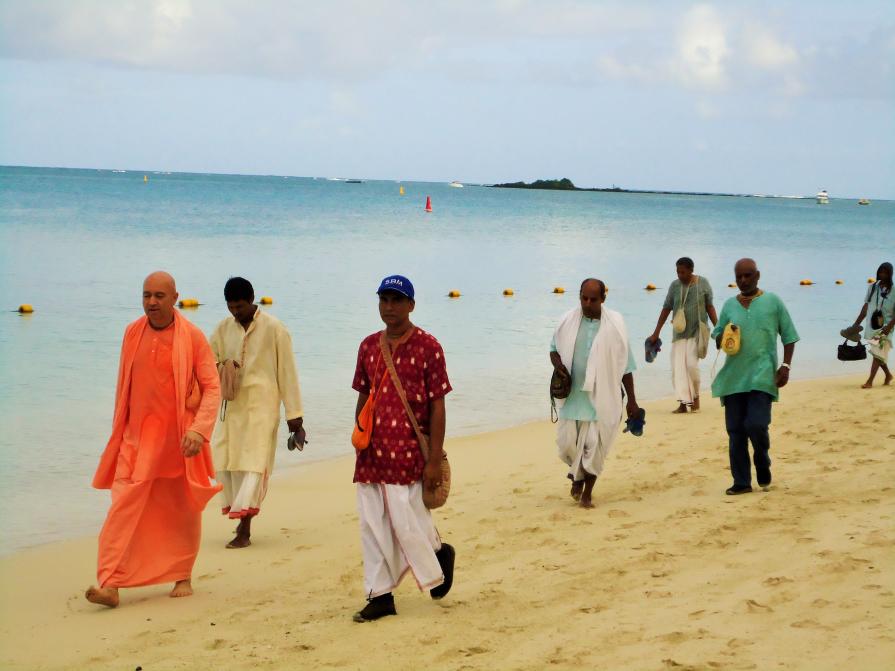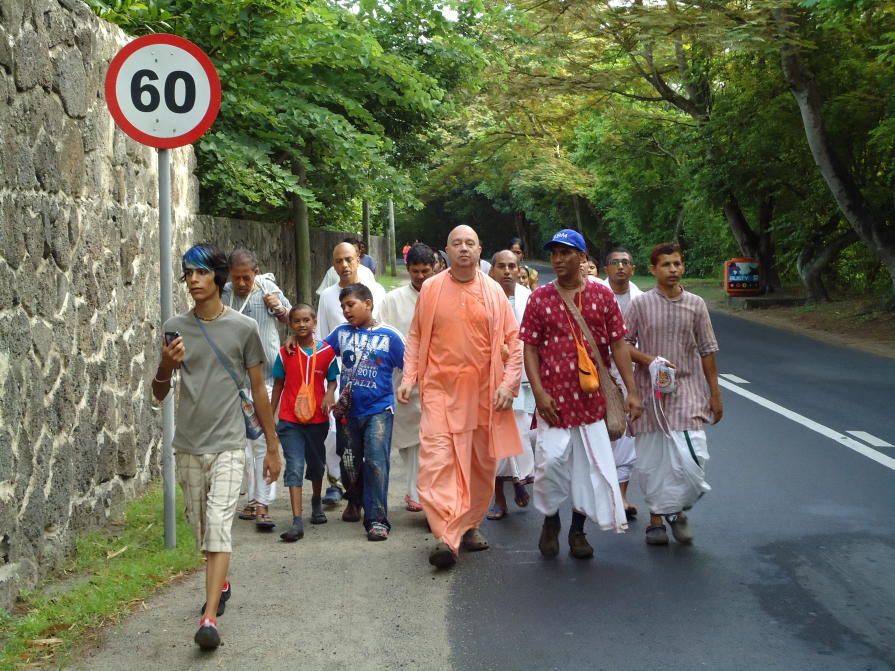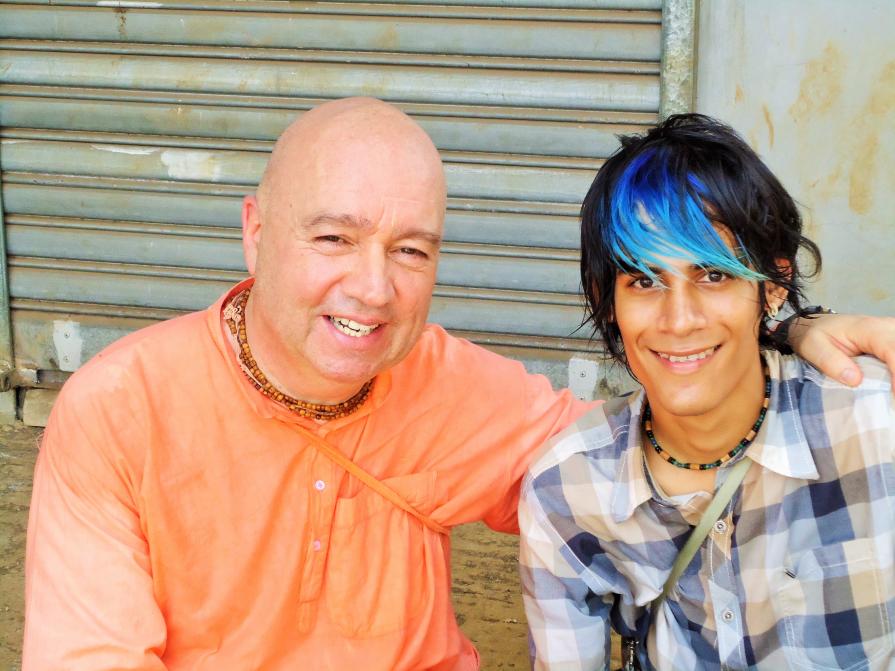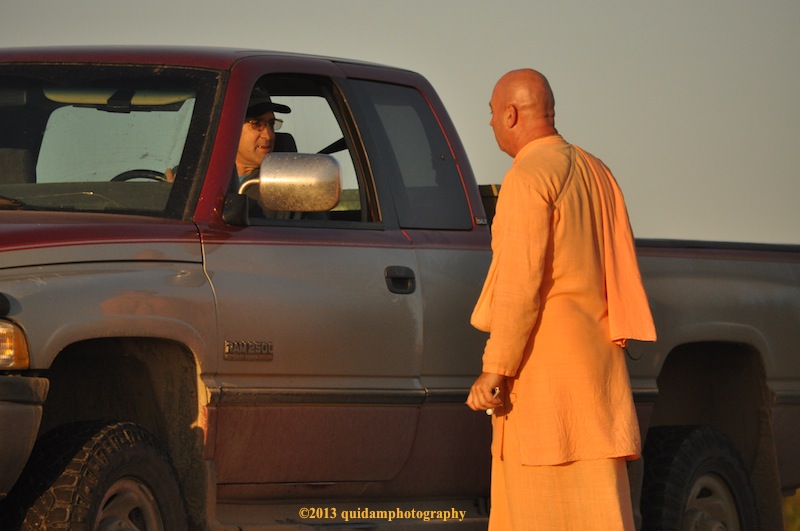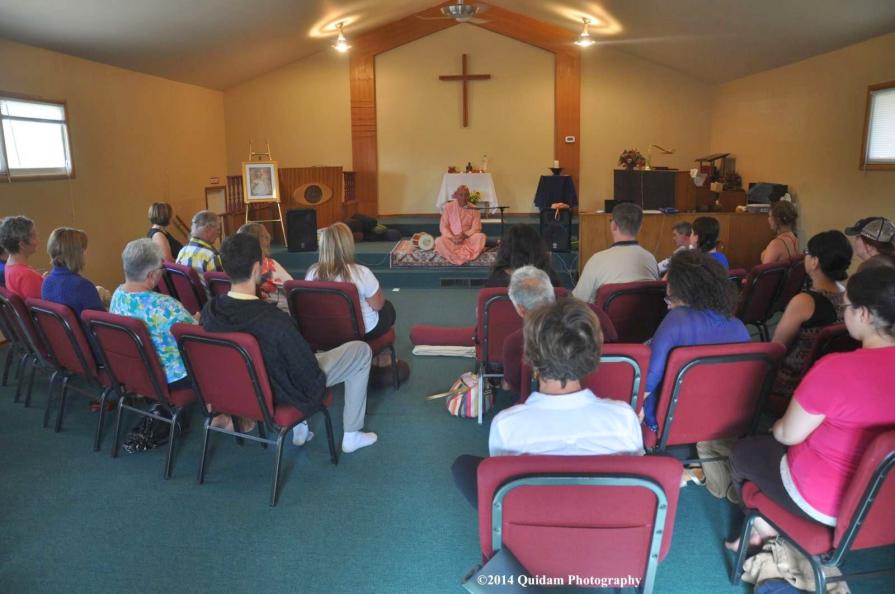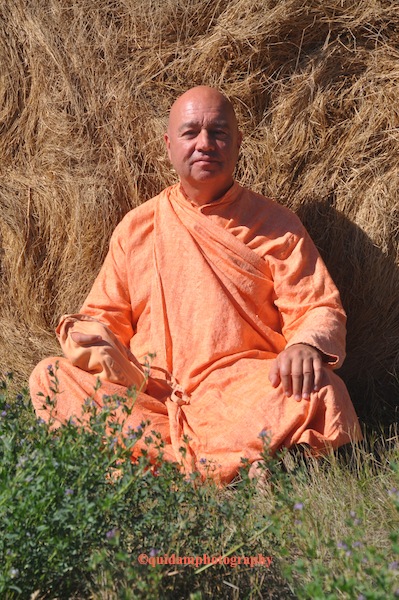Gdd: So far you walked a total of 30 964 kms (19 240 miles), out of these 29,500 kms (18 330 miles) during your four treks across Canada , and the rest in Guyana, Israël, Mauritius, Ireland, Fiji and Trinidad. Could you evaluate the number of pairs of shoes you used during these two years on the road?
BMS: Approximately four pairs per walk across Canada, which makes a total of 16.
Gdd: What kind of shoes do you wear?
BMS: I’ve attempted various footwear and Crocs have been my favourite.
Gdd: Are Crocs plastic shoes?
BMS: They are made of different materials. Of course I’ve tried the regular sneakers in the past but I wasn’t very happy with them. They don’t allow your feet to breathe properly. I just find that air needs to move through the toes, through the feet, and even under if possible. Most footwear that’s very enclosed doesn’t allow for good ventilation.
Gdd: What is the other footwear you like?
BMS: Something called Keen shoes. They’re like sandals and allow your feet to breathe, they’re a good snug fit and they have good support.
Gdd: Any other advice regarding shoes?
BMS: When it comes to footwear, if you’re walking l 8 hours a day, it’s a good idea to give your feet a break by switching shoes. Use your favourite for a bit and then switch shoes, maybe at the end of the day. When it rains you may require a different type of footwear. But I think the feet require change, because there are different pressure points and muscles in the body.
Gdd: What kind of roads do you walk on?
BMS: When I travelled through the Rocky Mountains in Canada, I was walking on the gravel and the shoulder of the road. It’s really not such a major challenge in terms of the incline because the road has been made to accommodate vehicles and you cannot make anything too steep for them, if you consider what it means in winter, snow and ice. I’ve done some walking on what’s called the Trans-Canada Trail, which takes you through the mountains, but usually the trails run along the rivers. When the first explorers came to Canada, virtually everything was done by water. The river was the highway, then came the railway line and the road. When the road construction came in, it meant going through the mountains, making tunnels or blasting through mountains so the service could be viable for vehicles.
Gdd: Maharaja, you’re in your sixties, and you walk around 30 kms a day. Is not it a strain on your body ?
BMS: The major strain is when you’re walking on the side of the road. There’s always a slope, a slant or an angle on the road because that’s the way the road is engineered so water and snow melting will run off to the side. I found that the thing to do is to walk on both sides of the road, with or against the traffic. I also like to start walking early in the morning around four.
GDD: Why?
BMS: At that time the road is kind of quiet and I can do all my japa. It’s just you and the maha-mantra, you can’t even be distracted by the beauty of the land around you. I walk right in the middle of the road, I feel I’m the king of the road. I just keep my eyes and my ears open. When I hear a vehicle coming and I see the headlights from afar, I just move over to the side when it comes.
Gdd: Do you encounter many animals on the road at night?
BMS: There are definitely nocturnal creatures, you can hear the sounds of many, many coyotes.
Gdd: Are they dangerous?
BMS: Coyotes have not been known to be too dangerous to humans. There was an unprecedented case where a woman in Cape Breton got killed by two coyotes. It seems something didn’t go right, but generally they’re not so much interested in you, they have a lot of prairie dogs that they can eat. One of the reasons why I walk in the middle of the road is because there’s a whole colony of coyotes yelping on one side of you, and on the other side of the road another community is communicating with them. It can be a sort of stirring moment, I’ve had my hair stand on end a few times. If you suddenly surprise an animal in the night, it feels it’s being stalked or attacked, and that’s when you can really be in trouble. Besides staying in the middle of the road I chant loud enough so that the animals know that I’m coming. I would say coyotes are not such a big threat, cougars are.
Gdd: Have you seen any?
BMS: Yes, I have seen some, dead on the road. Grizzly bears, or any kind of bear with her young, that’s a big threat, something to be concerned about. Runners or cyclist sometimes run into problems, because they suddenly appear on the road , and surprise the animals. When you’re walking, you’re going at a natural pace; the animal has a chance to hear you and go to the side, or it will let you know that they are there and you have an opportunity to swerve around. I would say it’s the mosquitoes, the black flies and the horseflies that are really something to deal with.
Gdd: What do you use to keep them away?
BMS: You have to put some repellent, that always helps very much so. I remember walking with a group of brahmacaris on Prince Edward Island on some sort of low areas of what’s called the Confederation Trail; formerly a railway line, now it’s just a walking and cycling route. We were being eaten alive, and repellent made a big difference. But the mosquitoes were coming at us real thick, to the point where they were entering our mouth while we were chanting japa. We got a little worried that we broke our vows.
Gdd: Can you tell us any scary moment you had with some animals?
BMS: There was a situation last summer where I would say got really close. I was walking at dawn on the southerly route in British Colombia, on Highway 3 called the ‘Crow’s Nest Pass’. I saw two grizzly bears in the bushes across the road from me. I had just newly acquired my Samsung cellphone that can also be used as a camera, and I thought, ‘Oh my God, I got to take a picture of these guys.” I tried to type in the password, but it did not work, and then I tried the buttons, but that also wasn’t working . Then I heard some hurried noise, and I thought, “ Those guys are going to come over here and devour me”. But it ended there, the bears were more scared of me then I was of them, so they took off. I’ve had some other close encounters with aggressive creatures, the crawling types, like rattle snakes, but I think it’s the human beings that are the ones you have to really look out for.
Gdd: What kind of human beings?
BMS: The drunken ones.
GDD: You mean when they’re driving?
BMS: Yes, the drunken driving human beings. I find that people are generally quite responsible behind the wheel, but I wouldn’t be walking during the drunken hours so much.
Gdd: What are those drunken hours?
BMS: For most people they are in the evenings up until the early mornings. That’s why I start walking by the time the party adventures die down. Krishna says in the Bhagavad Gita, “What is night time for the introspective sage is day time for the other sleeping souls.” I think it goes vice versa. I find that when you’re walking early in the morning the first commuters you might meet are usually the guys in a pickup truck going to work. They just had some coffee, the day hasn’t burnt them down yet, so they’re kind of quiet. They pull over and ask me how it’s going, and if a I’d like a ride. I meet some of the nicest, friendly and open-minded people early in the morning.
Gdd: Do you carry any weapons ?
BMS: No. Sometimes it’s recommended to use bear spray to keep the black bears off, but I don’t know how effective it is on grizzlies. I heard the story of a fellow who was cycling through the mountains with a mountain bike. A grizzly pounced on him and sent him flying off his bike. The fellow’s back pack fell off, and the grizzly started to smell through it. It sunk his teeth into a can, but it was a bear spray can. It went ‘sszzzhhhhhhhhhh’ and the bear took off .
Gdd: Very effective indeed! You told me you have a cell phone, I assume you would call your escort person in case of emergency. But they could be far from you at that moment ?
BMS: Oh yes, yes! What happens is that my support person drives me and leaves me at the spot where I left off the day before. Then he usually goes back to the tent to let it dry off before packing up. Four hours later he comes to see me and check to see if everything’s okay . Then he’s ready to move onto the next town, where he will inform the media, get a hold of the yoga centres, libraries, community centres and see if there’s anybody interested in our story which is called “Tales from Trails”. People like to hear human interest stories, what happens to you during the course of the day, how people react, the difficulties and challenges you encounter and how to overcome them. There’s so many different stories, stories of candour, of humour, of danger, and so on.
Gdd: How do you introduce yourself to the people you meet?
BMS: If people have already heard about what I’m doing through the media or friends, they stop and talk. They say things like that, “Hey, I think it’s great what you’re doing”, or “I know you’re walking. What is it for?” I answer that it’s to promote pilgrimage, to encourage people more towards a care-free, car- free kind of lifestyle, to go back to basics. To take some time for yourself, to contemplate, to meditate, to pray. To get a chance to smell the roses and meet people. Most drivers are just whizzing by, but if you’re a pedestrian you stand a better chance to meet somebody who is also a pedestrian. When you’re in a car you’re clued out , you’re zoned out from the rest of the world and you’re infiltrated by what the radio messages or someone’s trying to tell you: what to do, what to buy, even things you don’t need. When you listen to the radio in a car someone’s encroaching on your freedom. That’s the way I see it. I believe real freedom comes from walking, using the faculty or the machinery that has been given to us by God through nature. This way you can be a much more happy personality.
Gdd: So, since you’ve been walking these long distances, have you really felt much more happy, more introspective, more prayerful?
BMS: When I look at chapter 10 of the Bhagavad -gita where Krishna speaks about His own opulences, its contents resonates much more with me because I’ve been walking through nature and trying to appreciate it. Yes, I can actually feel the presence of the divine in the rocks, the tree, the water, the air, the current changes, the blazing sun, the cold, the wetness. When you start to feel the power of God it’s very humbling. Sometimes we feel God’s in the temple or in the holy books, that’s true, but when you’re walking you start to see God in a more pervasive way. God is everywhere, through the elements especially.
Gdd: Do you chant all day while walking?
BMS: I chant my japa for the first three hours of the day, then I continue to chant but I release my arms and let them sway side to side. When you’ve walked many months and done something repetitive, you start to do something imbalanced, even stretch your right arm, and it’s going to affect you for a little while. I start to develop some muscle issues, therefore I really have to go for the balance of swinging back and forth.
Gdd: Do you chant at the same time?
BMS: I usually chant the maha-mantra or I sing a bhajan.
Gdd: So, that’s what you do all day long?
BMS: As I said, I do a lot of singing, I meet people or I’m just contemplating. I can tell you one thing: when you’re walking across vast tracks of land every day for many hours you really improve your lung power.
Gdd: Do you feel more healthy now?
BMS: Yes, definitely. Sometimes people ask me, “Aren’t you getting tired?” And I say, “Actually, this is giving me life. I get tired from just hanging around. I get energized from the movement from head to toe, it’s natural for us, these bodies were meant for walking.”
Gdd: You said you are in a more meditative and more introspective mood…
BMS: Yes, when you walk long distances you do have a chance to be touching the three phases of time – past, present and future. But what’s most important is that you enjoy the moment, you enjoy what you’re doing and really try to feel the presence of Krishna in what’s going on in the very moment. In other words, you don’t have to be too anxious.
Gdd: Could you say more about these three phases of time and your relief from anxiety?
BMS: On the road I get a chance to reflect a little bit on the past. If I look back at some of the blunders I’ve made, I’m starting to think that maybe I can make it up somehow. Maybe I can send some vibrations of “I’m very sorry” to those people I have offended. After all, the walking is a kind off a cleanser. You’re really going to get yourself clean, purged, mind and body. As far as the future is concerned, I think of its prospects, the projects that excite me. And as far as the present is concerned, the road is an opportunity to really be at peace with myself, to experience true ‘atmaram’, to be self-satisfied and at peace, not to be anxious, just to be content with what’s right there with me.
Gdd: What do you carry in your back pack? Do you have a raincoat?
BMS: My japa beads and more recently my cell phone for the camera. I’ve been very lucky in the rain department, and in Canada the weather is a little bit predictable.
Gdd: So, no raincoat or sweater?
BMS: My support person is very good at that. If he sees rain or a cold front coming, he’ll bring them to me. But he knows that I’ve built up a robustness –one thing is that if you’re walking everyday through the elements you don’t get sick. You get sick from when you’re indoors in square rooms with dead air, artificial lighting and with people bringing all sorts of diseases.
Gdd: Do you carry a walkman and listen to classes?
BMS: (Chuckles) I did that the summer before. I listened to some discourses by Srila Prabhupada, and also to music composed by some of my friends which I use as background music in the plays that I direct. That music gets me moving a little faster, but I’ve found it’s highly dangerous, even on a quiet highway. I get so absorbed in it, I don’t even know what’s coming or what’s behind me, I become totally inattentive. So I quit using that walkman, I decided it was not proper, not natural and highly risky.
Gdd: I was curious about that.
BMS: Once in a while my support friend will sneak up on me and he will play on his vehicle, ‘My Sweet Lord’ or something like that. We both like certain gospel singers. Once it was raining and he played a gospel sung by Mahalia Jackson. It was so beautiful and so uplifting because rain can be so uplifting at times.
Gdd: When you meet people, do you get them to chant Hare Krishna?
BMS: Well, my approach is kind of subtle. I make friends with people and I generally give them a card with the maha-mantra on it. That’s the best you gonna do. If you’ve just met somebody and if you think you’re going to stand on the side of the road, and say “Hey buddy, chant this mantra”, he’ll say “Why?”
Gdd: Of course, but when you do programs for example?
BMS: When we do programs, naturally. We have three components to our program presentations. The first one is “Tales from trials”, then we introduce the philosophy and then we chant mantra meditation at the end. Everyone does it, they love it because by this time you’ve made them your friend, you got them to laugh a little bit, take them on the road with you, at least mentally, then they’re ready to do anything.
Gdd: Any special encounters on the road, besides truck drivers stopping for a chat?
BMS: There’s all kinds of encounters, but here’s one thing that happens sometimes, people who will try to seduce you.
Gdd: You mean women?
BMS: Yeah, and the others too (chuckles). In the mornings, I like to wave to people in their vehicles, especially when the sun is shining. One time I was walking on Highway 2, waving to the cars. One car turned around and pulled over on the side of the road. A woman and her dog came out. I could see she was a little drunk and the way she was dressed was a little erotic. On the radio, Johnny Cash was singing this song “I keep my eyes wide open all the time because you’re mine…I walk the line”. So she came closer to me and asked in a very seductive way, “What are you doing?” “Well, I’m walking across Canada to promote pilgrimage.” I replied. She then continued in a seductive tone, “Well you know, I know a real nice place down the valley where the sun comes up.” In the meantime her dog was barking and Johnny Cash singing. Then I said, “Well, I can’t leave this spot, my support person is dependent on me being here. If I left the road to look at some nice scenery, he wouldn’t know where I was and he would get frustrated or angry with me so that wouldn’t work.” From that point on she got so disappointed. I just kept on hearing Johnny Cash’s line, “Just walk the line…” Yes, just keep walking down the line, Bhaktimarga Swami, just get out of here as fast as you can. These kinds of instances happen on the road. What we have to understand is that there are a lot of lonely people out there, there’s a lot of depression. People are wanting. They are in despair. They resort to drugs, contemplate or commit suicide. I have a chance to ask people what’s going on in their life, how’s their family life, their relationship and immediately they open up. I’d say that 50% of the people say it’s not going so well. Then I get a chance to say something of this sort, “You know our real relationship is with the creator. Ultimately, nearly everyone in this world is going to disappoint you, you might forget that. You might want to consider not giving that so much priority and put the priority on the absolute.” That’s the kind of human encounters I have.
Gdd: What about the quality of your chanting? You’re always chanting by yourself, in the dark. Do you have better and more powerful chanting?
BMS: It’s definitely the chance to chant better rounds with less distractions, but my chanting , it’s a long road, if I can use that term. It’s a long road to get to where I want to be, in all honesty. But if I did not chant at all, where would my mind be at? I probably wouldn’t have the determination to walk across the country. There’s extra shakti (power, energy) that comes from Krishna when you chant His name, attentively or even inattentively. The point is to always try to improve. My experience is if you want to get some good japa done, don’t hang around devotees, because they will always talk, ha ha. (laughter)
Gdd: So, what about your next walks in America?
BMS: In September 2015, for the 50th anniversary of Srila Prabhupada coming to the west, I will start walking from Boston, where he first landed (the weekend of the 18th and the 19th) to Butler, Pennsylvania. Then from Butler to New York City. If that goes really well then the plan is to go from New York City to San Francisco next year.
Gdd: All by yourself? Or do devotees want to join you?
BMS: If anyone wants to join me, they can. I’ve had a lot of offers like that, people expressing themselves as such, but when it comes time to actually doing it, where are they? Sometimes devotees parked their car and walked with me, and then they have to get back to where their car is.
Gdd: Anything else you want to say, Maharaja?
BMS: I get personally enthused when I see people who have caught onto the need to take care of themselves physically, because whatever you do physically is going to impact you psychologically. If you take care of your body you’re likely to do some nice service, some nicer things for Guru and Krishna – at least you’ll last a little longer. Also, I would like to encourage the notion of pilgrimage because, in the world in which we live, people have pretty much everything – they go to school, work, have their recreation, and so on. But there’s one thing missing in human society, that our ancestors and ancient people used to do: to go on pilgrimage for some visualisation, some purging, or some introspection. The other day (in Mayapur, India, where the interview was done) one Russian male devotee said, looking over the park where people were relaxing, “Here in India people really know how to enjoy”. I said, “Yes, that’s right”. In the west if somebody sees some flat grass, they won’t lie there, sit and talk to each other, pull a weed out, and laugh like they do here in India. They’ll have to be somewhere at a water park and pay 30, 40 or 50 dollars to get their kids through to the afternoon. Why can’t fun be wild and free? When I was a kid with my friends we did all kind of fun things: climb up trees, go into the barn and play Tarzan, then cops and robbers or cowboys and Indians – I used to be an Indian.
Gdd: I know you have many responsibilities when you’re not walking. I’m wondering if your walking so many miles helps you assume your responsibilities better?
BMS: Well it does, because I’ve gained experience by meeting so many people. I come back very refreshed, with new enthusiasm. My head’s clear and I had time to think about my future projects. After the walk it’s time to execute them, to have my dreams become materialized.
Gdd: Would you recommend to all the GBCs to take some time on pilgrimage, walking or not walking?
BMS: I know that many of my peers do go on pilgrimage . Many of them do yoga and do some sort of exercise, running or walking, but I think that the message is clear, we can always do a bit more. I would say that if everyone in the globe walked from one hour to one and a half in the morning it would be a different world. Think about the medicational issues or medicine we don’t have to consume or inject because we are in good health. Just think about it. Then you have time to meet your neighbours, time to meet the air and the sun and the moon. You know you come out as a brighter person. Oxygen goes to your brain, you think things over better, and you become a little more decisive and thoughtful. It’s all because we are designed for that very thing (walking). I’d like to see a little more emphasis on that in the brahmacari and brahmacarini training program; they should include some kind of exercise on a daily basis. Forty minutes to an hour should be given to physical work, whether it’s stretching or a little more intensive type of exercise. In any case it should be done because I’ve seen catastrophic situations where that has not been applied by renunciates. So I feel we should start as early as we can.
Gdd: Okay Maharaja, thank you very much for this interview. Happy treks!

